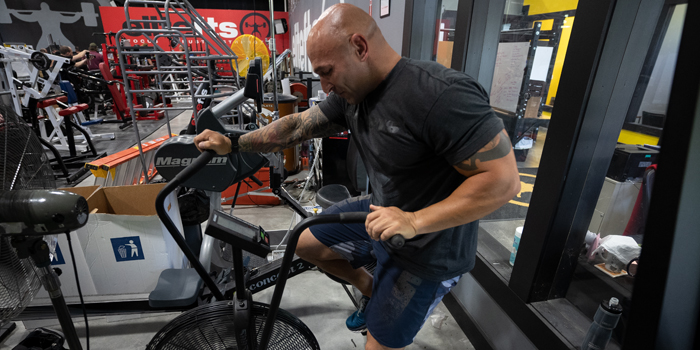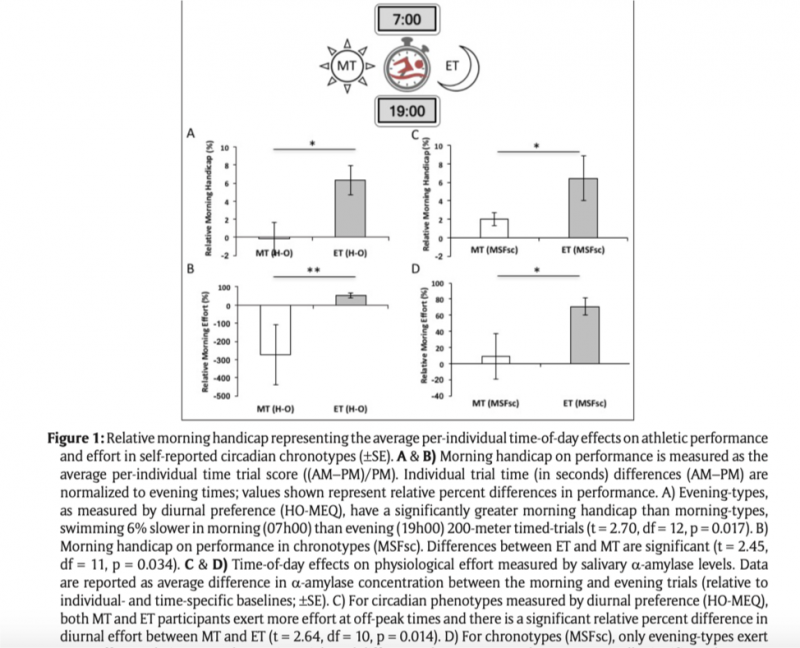
Circadian Effects on Performance and Effort in Collegiate Swimmers
Anderson et al. 2018
In this study they looked at the effects of swimming performance and effort of swimming based on the time of day they swam in relation to their circadian phenotype. We have seen in the research that people who are adapted to training in the evening perform significantly worst if they move their training to the morning. After 2-3 weeks of continued a.m. training they start to perform up to the same standard as previously seen in the evening. This can be very important for athletes who compete in the morning but train in the evening.
Athletic performance generally peaks in the afternoon when physiological processes fueling metabolic activity are at their peak. Athletes with extreme morning or evening phenotypes tend to perform better near their circadian peak in endurance activities, as well as in strength training. In addition to performance, chronotype influences time of day differences in psychophysiological responses to exertion, including rate of perceived exertion (RPE), heart rate (HRV) and mood.
Anderson took 27 collegiate swimmers and had them compete in 200m time trials at 7a.m. and 7p.m. Their results indicate significant and parallel time-of-day by circadian phenotype effects on swim performance and effort; evening-type swimmers swam on average 6% slower with 50% greater α-amylase levels in the morning than they did in the evening, and morning types required 5–7 times more effort in the evening trial to achieve the same performance result as the morning trial. α-amylase levels are indicative of effort level. This suggest that time-of-day effects on athletic performance and effort are influenced by an individual’s circadian behavioral phenotype and are associated with molecular and physiological differences.









